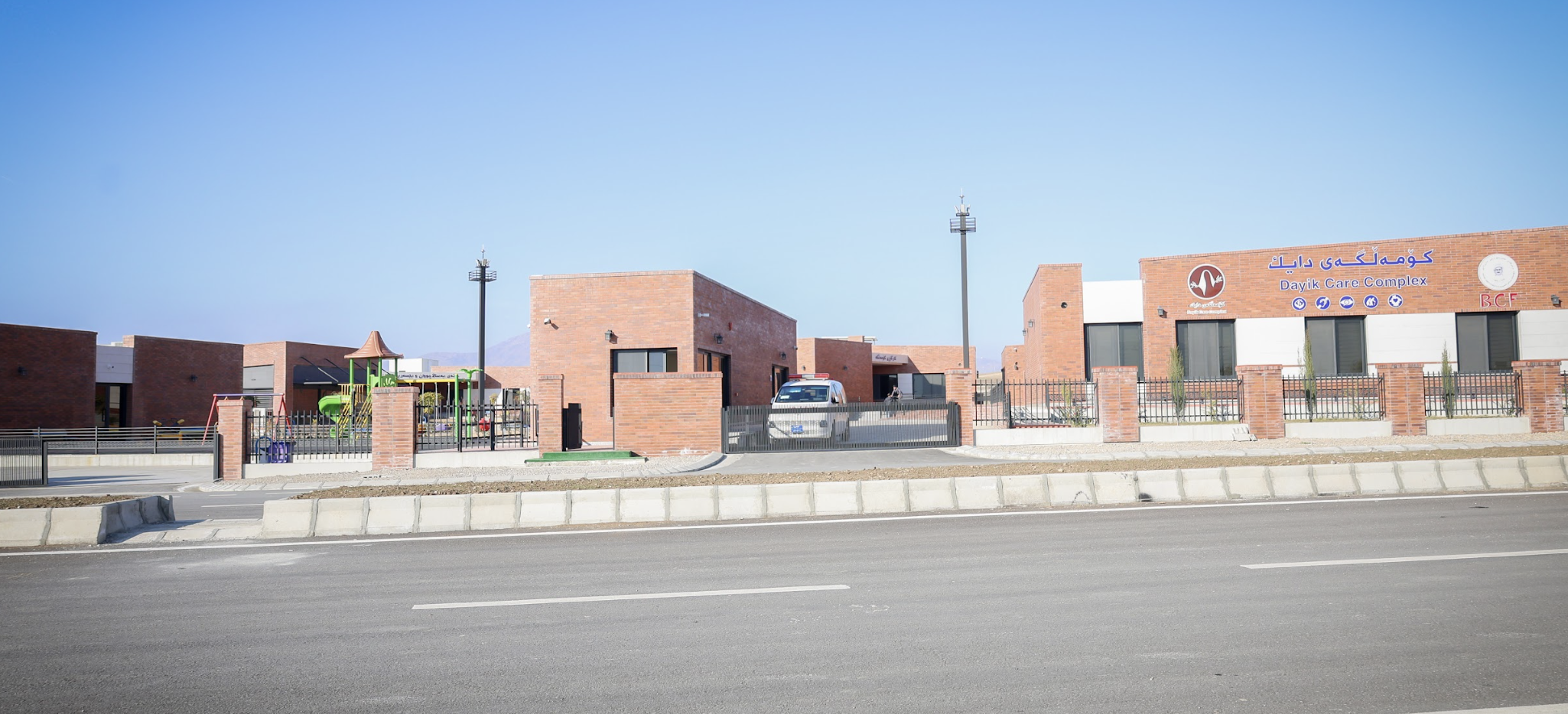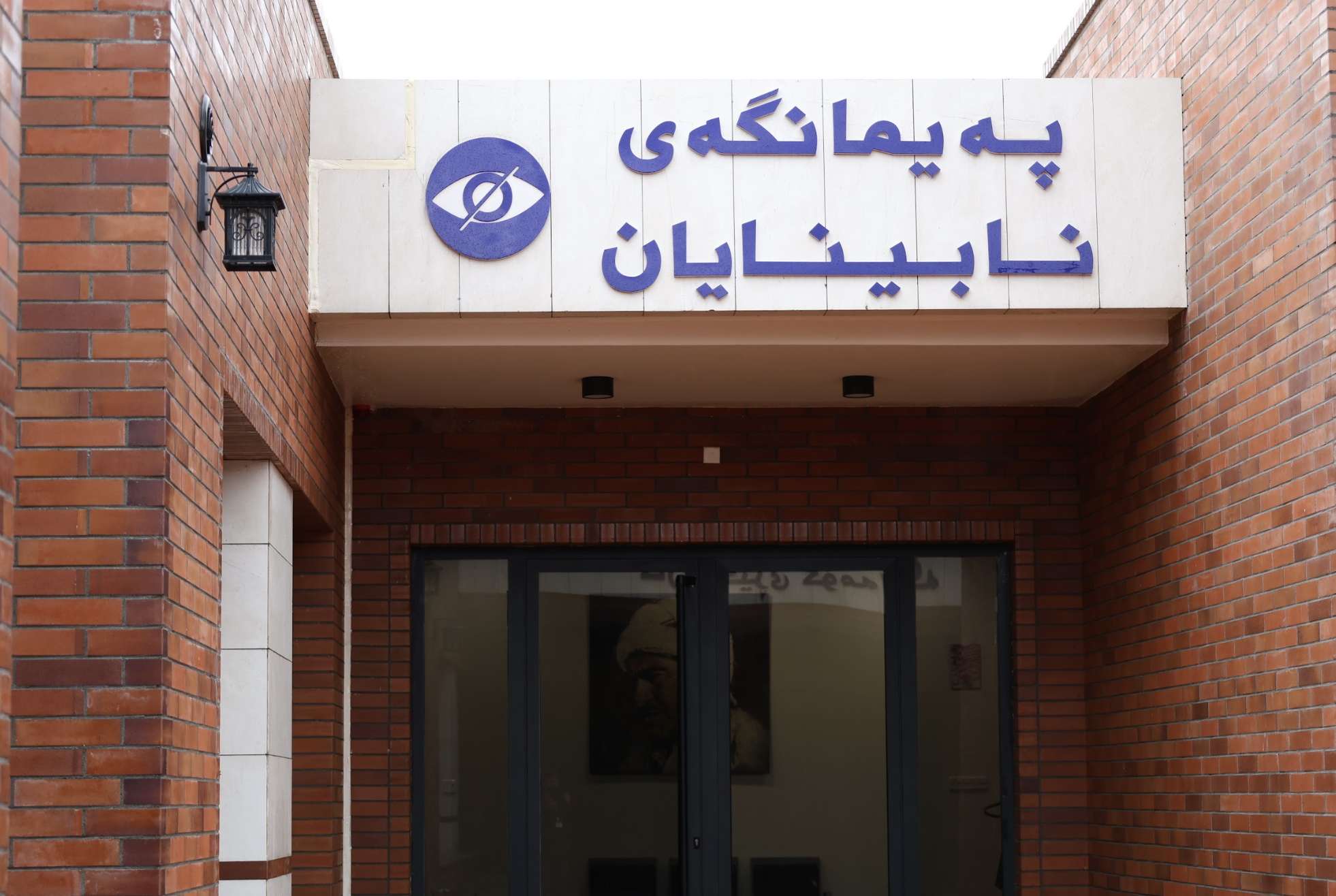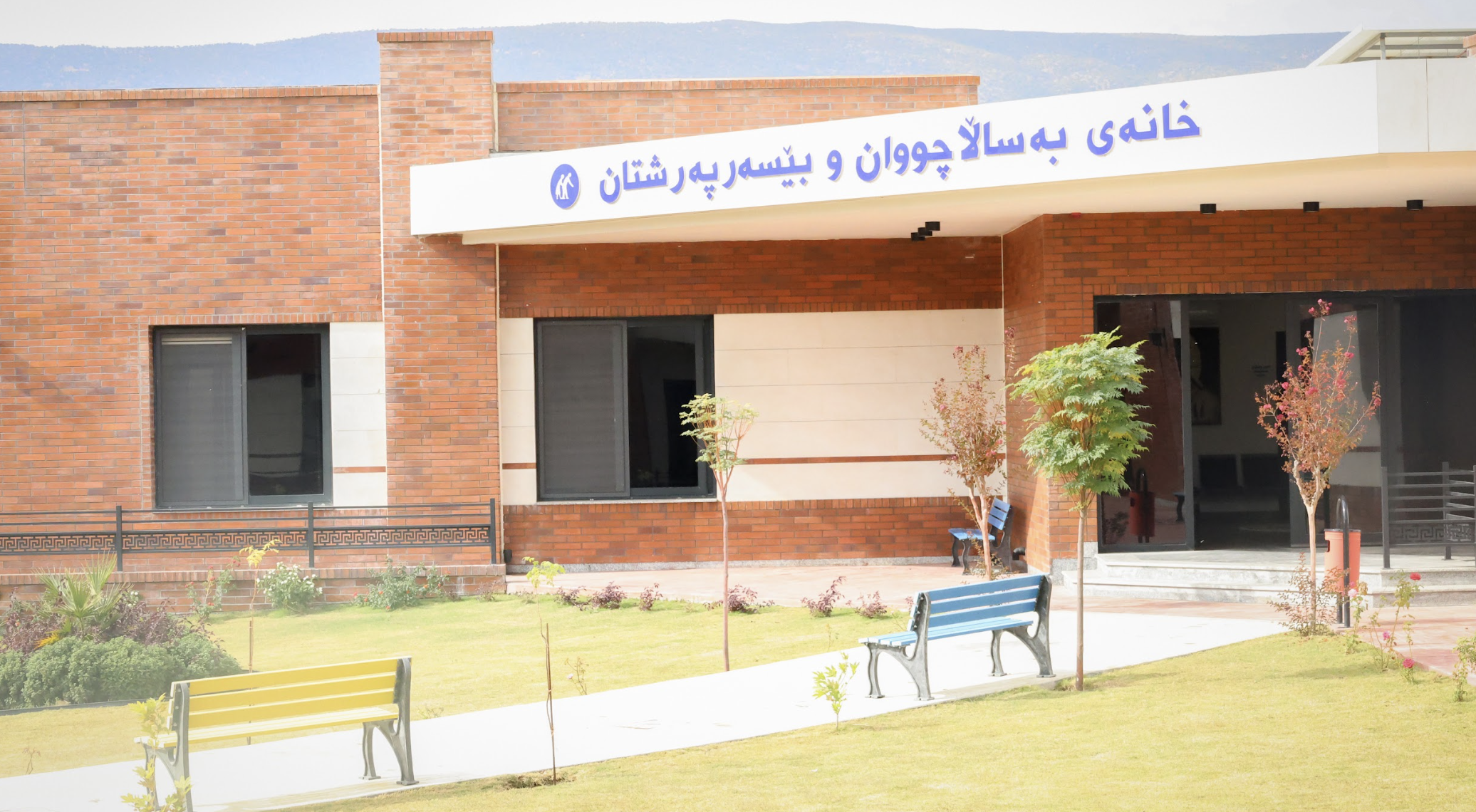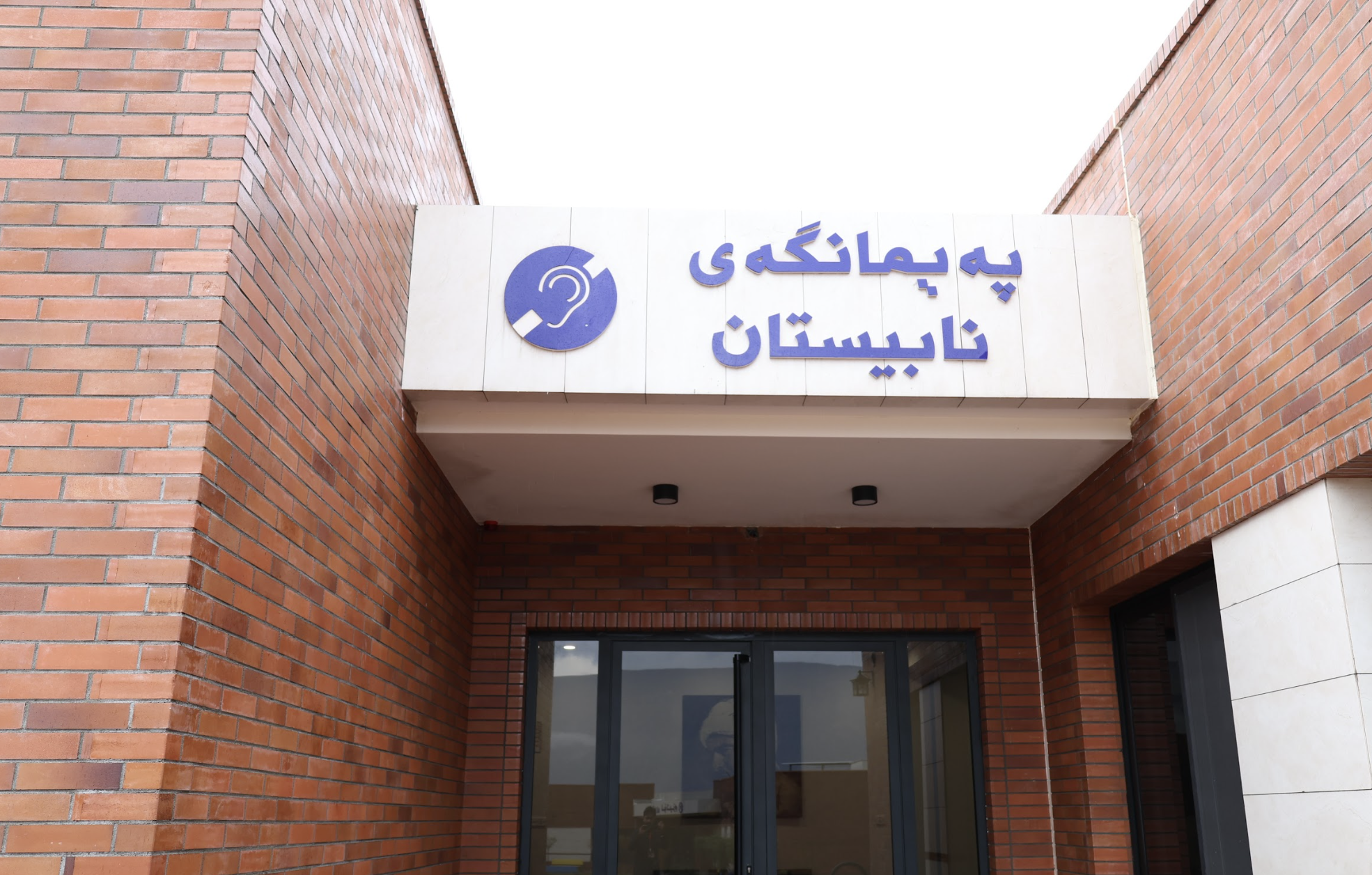The newly opened Daik Care Complex (DCC) in Soran, located within Erbil Governorate, is the first of its kind in the area. Before the DCC was established, residents had to travel over 100 kilometers to Erbil for these services. Now, the DCC has become a welcoming and vital facility offering essential services to those in need, filling a significant gap in Soran.
The complex consists of six specialized buildings: an autism center, a nursing home, an orphanage, a cultural center, a center for the visually impaired, and a center for the hearing impaired. It also provides sports and recreational facilities for all its residents and students. The Barzani Charity Foundation (BCF) owns and manages the complex, offering all services free of charge.
In an interview with Kurdistan Chronicle, Pewist Salim, the head of the visual- and hearing-impaired sections at the DCC, emphasized that there has been a growing demand for these services in the Soran Administration, particularly after the BCF opened the DCC. He explained that the name Daik – which means “mother” in Kurdish – reflects the nurturing role the complex plays in the lives of many individuals, offering both a home and a place to learn, grow, and build relationships. Salim also highlighted the complex’s role in raising awareness among the public about the needs of impaired individuals.

Empowering marginalized individuals
Established in 2024 under the leadership of President Masoud Barzani and the BCF, the DCC was founded to address the urgent needs of vulnerable populations in the Soran Administration of the Kurdistan Region. The initiative stemmed from a recognition of the lack of resources for individuals with impairments, elderly citizens, and orphans.
Led by the BCF’s President Musa Ahmad, the foundation took on the responsibility of managing the project, ensuring it met international standards. With the goal to provide specialized care, medical services, and educational opportunities for individuals with impairments, the elderly, and orphans, the DCC aims to empower marginalized individuals, integrate them into society, and promote their dignity and well-being.
The belief that everyone deserves the opportunity to lead fulfilling lives, regardless of their condition, remains central to its mission.
At the DCC, education is a key component of empowerment for individuals with impairments. The complex offers specialized educational programs for the visually impaired, hearing impaired, and physically impaired. These individuals, often facing significant barriers in traditional educational systems, are given the opportunity to learn and grow in a supportive, tailored environment.

Hazhar Ramazan, a special educator and trainer at the complex, shared that the educational programs employ adaptive learning tools and methods to ensure every student receives the support they need. “We use tactile materials for the visually impaired and sign language with visual aids for the hearing impaired. For those with physical impairments, we provide assistive technologies like modified keyboards and voice-activated devices to ensure full participation,” Ramazan explained.
These programs are not only designed to enhance academic knowledge, but also to foster life skills, boosting independence and confidence. Ramazan shared the story of a young girl who had difficulty understanding math concepts before joining the program. “After using tactile materials, she was able to understand and confidently solve math problems – a breakthrough she never imagined possible before.”
The success of these programs is seen in the stories of students like this girl, whose confidence and independence have grown significantly. The educational initiatives at DCC go beyond academics, focusing on building life skills and social integration, offering a pathway for individuals with impairments to reach their full potential.

Social integration
In addition to educational programs, the DCC emphasizes social integration. The complex organizes various social events and activities, such as art classes, cooking sessions, and inclusive movie nights. These activities allow residents and students to connect with one another and the broader community, creating a sense of belonging.
Ramazan emphasized the importance of these activities for emotional well-being. “Social interaction is vital, especially for people with impairments. We organize activities that bring people together and offer them opportunities to engage with the wider community,” he said.
One highlight is the annual Community Integration Day, an event that brings local residents and DCC participants together through performances, discussions, and activities that promote inclusivity and break down societal barriers. This initiative has been instrumental in fostering understanding and reducing stigma surrounding individuals with impairments.
As Salim pointed out, “these activities allow residents to form lasting friendships and feel connected to a larger society, rather than isolated. It is a crucial part of empowering them to live fulfilling lives.”

While the DCC has made remarkable progress in providing vital services, it faces several challenges. Ramazan shared that securing sufficient funding to maintain and expand services is one of the primary obstacles. “The demand for our services continues to grow, but funding remains a constant challenge,” he said.
Raising awareness about the complexities of impairments, especially in rural areas, is another challenge. “There is still much stigma surrounding impairments, and in some areas, people may not fully understand the needs of those who are visually impaired, hearing impaired, or physically impaired,” Ramazan noted. “We aim not only to provide care, but also to educate the public and change perceptions.”
Looking ahead, DCC plans to expand its programs, including vocational training to help residents gain skills that will enable them to become more independent. “We want to offer a wider range of skills that will help our residents integrate into the workforce and lead self-sufficient lives,” Ramazan explained. The complex also hopes to extend its services to other areas of the Kurdistan Region, with community support being essential to this goal.
“The DCC is not just a place of care; it is a place where lives are transformed,” Salih emphasized. “It provides individuals with impairments the opportunity to live independently, participate in society, and find their place in the world.”

